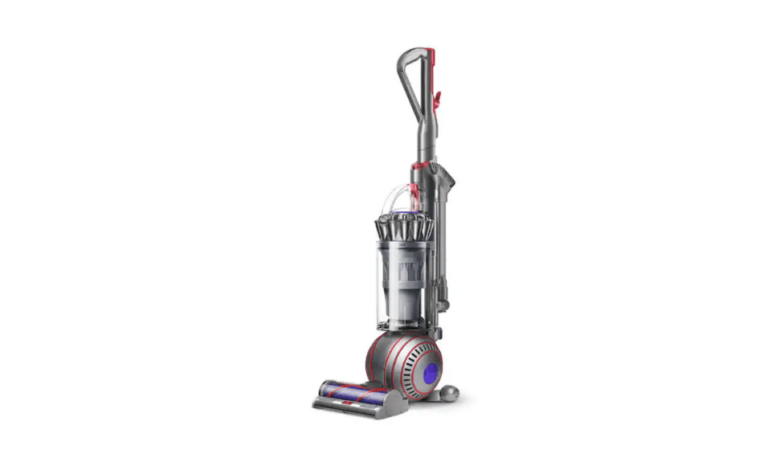15 tips and tricks for handling seasonal allergies – WPRI.com

Allen Foster, BestReviews Staff
BestReviews is reader-supported and may earn an affiliate commission. Details.
Keep allergies at bay
If you have allergies, there are certain seasons that you might dread. For many people, spring is the worst. The abundance of pollen from trees, grass and weeds mingle with the air to become easily inhaled. Once inside, your body treats these benign invaders and reacts almost the same way it does to a cold or flu virus. The result is that you feel miserable.
For some, the best approach to fighting seasonal allergies might not be treating the symptoms with over-the-counter and prescription medications. It might involve limiting your exposure to allergens that cause the symptoms. Luckily, with modern technology, there are several ways to accomplish that.
Shop this article: Dyson Ball Animal 2 Upright Vacuum Cleaner, Shark NV360 Navigator Deluxe Upright Vacuum and Dyson Air Purifier with HEPA Filter
What causes allergies?
According to the Mayo Clinic, allergies are the result of an overactive immune system. When a foreign substance — that doesn’t cause a reaction in most people — gets in, your immune system goes on high alert and starts producing antibodies to combat the threat. The antibodies release chemicals, such as histamine, that cause allergy symptoms. As the battle rages on, your body becomes a casualty, producing a variety of reactions from mild irritation to life-threatening emergencies.
What are typical seasonal allergy symptoms?
There is a broad range of allergy symptoms. Many overlap the symptoms you have when you get a virus. Some of the most common reactions to seasonal allergens include:
- Itchy skin, nose, eyes and roof of the mouth.
- Sneezing, runny nose and congestion.
- Red, swollen, itchy or watery eyes.
- Coughing and postnasal drip.
- Tightness in the chest, shortness of breath and wheezing.
- A rash, hives or swelling.
- In rare cases, a severe reaction known as anaphylaxis can occur.
What are common allergens?
While nearly anything can be an allergen depending on your sensitivities, the most common seasonal triggers are tree pollen, grass pollen, weed pollen, flower pollen and mold. It is important to understand that allergies are cumulative. You could have a mild sensitivity to animal dander that doesn’t normally bother you. However, when you are exposed to animal dander, tree pollen and mold, your body could reach a tipping point that triggers symptoms.
How to manage seasonal allergies
The key to remaining symptom-free is reducing your exposure to allergens. Here are 15 simple ways to do that.
- Keep a diary of activities and symptoms to learn your triggers.
- Avoid known triggers to the best of your abilities.
- When the pollen count is high, stay indoors as much as possible.
- If you must go outside, plan on late afternoon activities.
- Do not open windows. Use an air conditioner to help remain cool.
- Purge your environment of troublesome allergens by investing in an air purifier and a high-quality vacuum cleaner.
- Choose easy-to-clean furniture, remove carpets and reduce clutter. Consider getting a machine-washable rug that can be cleaned regularly.
- Change the filter in your central air system. If the system can tolerate it, use a HEPA filter.
- Wash your curtains and bedding often.
- Wear a mask when cutting the grass or doing other outdoor tasks.
- Take a shower after being outside.
- Brush your pets before letting them inside to reduce the amount of pollen they bring into the home.
- Bathe your pets at least once a week.
- Do not allow smoking inside the home.
- Consult a medical professional to determine if you need to be on symptom-alleviating medication
What you need to manage seasonal allergies
Dyson Ball Animal 2 Upright Vacuum Cleaner
This high-end Dyson vacuum is certified by the Asthma and Allergy Foundation of America. It has the strongest suction in Dyson’s line and a self-adjusting cleaner head that lets you tackle all types of floors.
Sold by Amazon
Shark NV360 Navigator Deluxe Upright Vacuum
The detachable pod feature lets you take this powerful vacuum into hard-to-reach areas. It has an anti-allergen seal and works with HEPA filters to trap dust and allergens. The upright vacuum is easy to steer and has a large-capacity dust cup.
Sold by Amazon
Dyson Air Purifier with HEPA Filter
The sealed HEPA and activated carbon filter can trap pollen, bacteria and pet dander. It is certified asthma- and allergy-friendly by the Asthma and Allergy Foundation of America, and it has a quiet mode that lets you run the unit around the clock if needed.
Sold by Amazon
This NIOSH-approved N95 mask lets you work outside by reducing your exposure to allergens. It has an exhalation valve for up to 50% easier breathing.
Sold by Amazon
Want to shop the best products at the best prices? Check out Daily Deals from BestReviews.
Sign up here to receive the BestReviews weekly newsletter for useful advice on new products and noteworthy deals.
Allen Foster writes for BestReviews. BestReviews has helped millions of consumers simplify their purchasing decisions, saving them time and money.
BestReviews spends thousands of hours researching, analyzing and testing products to recommend the best picks for most consumers.
Copyright 2023 BestReviews, a Nexstar company. All rights reserved.




